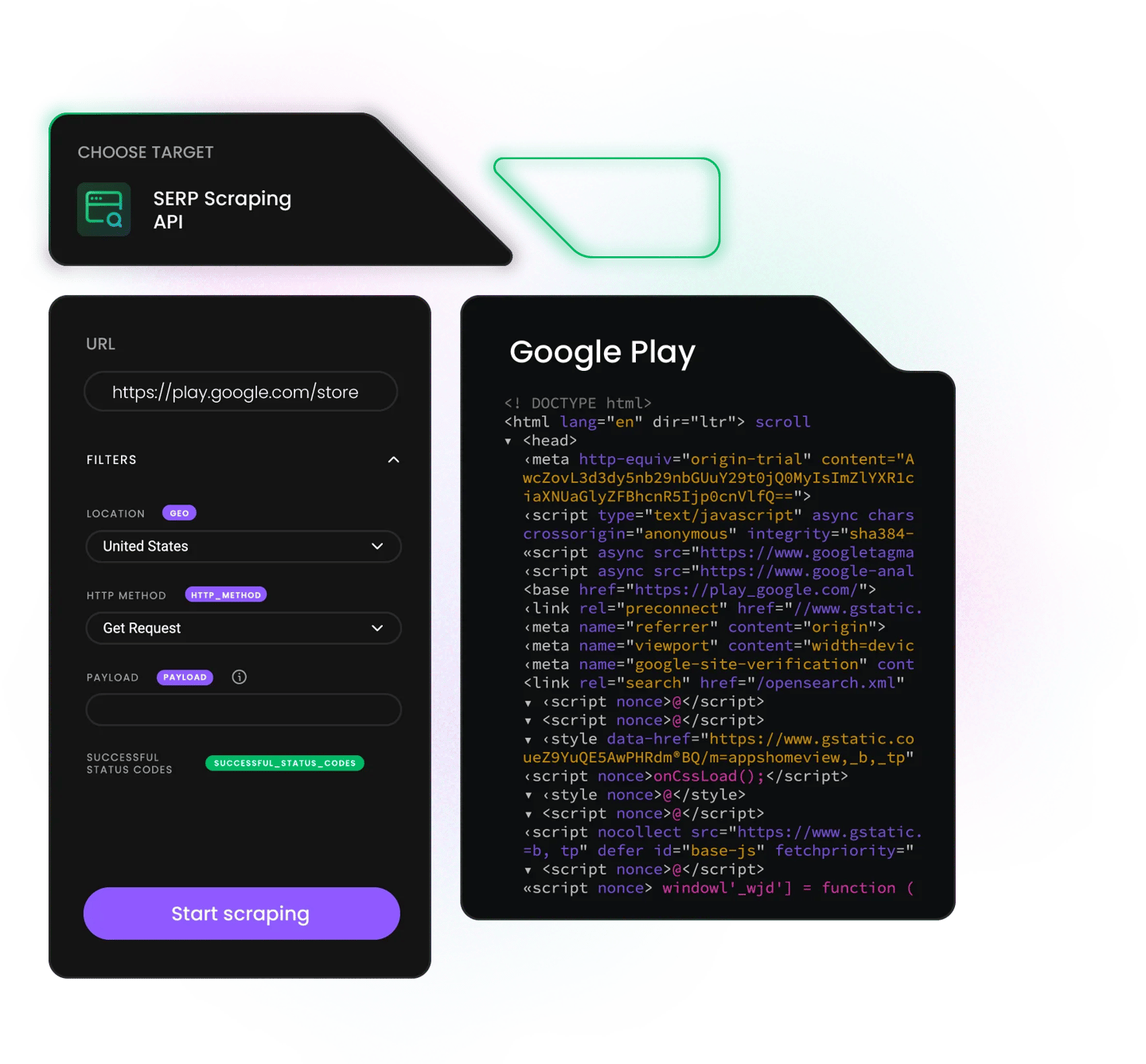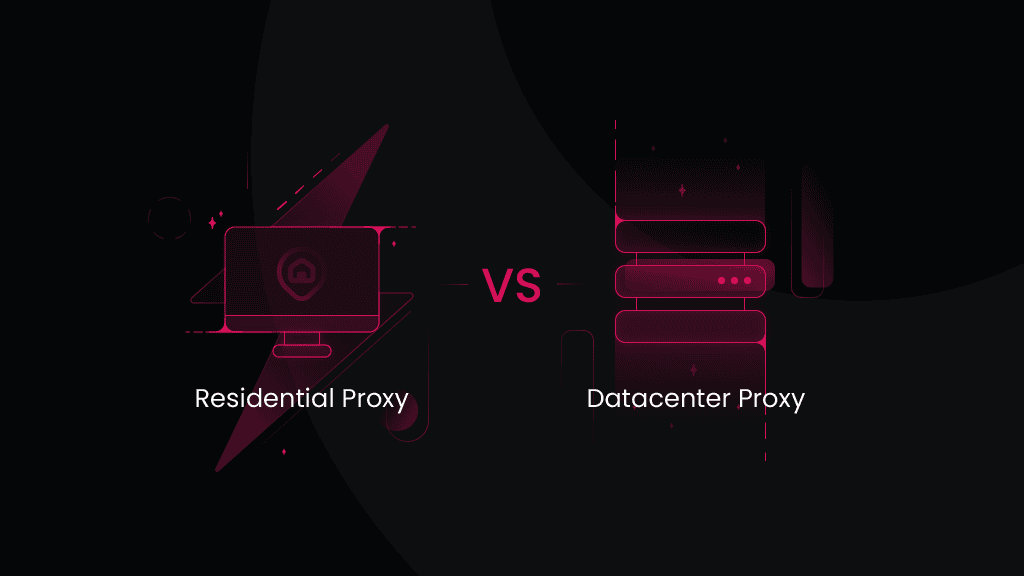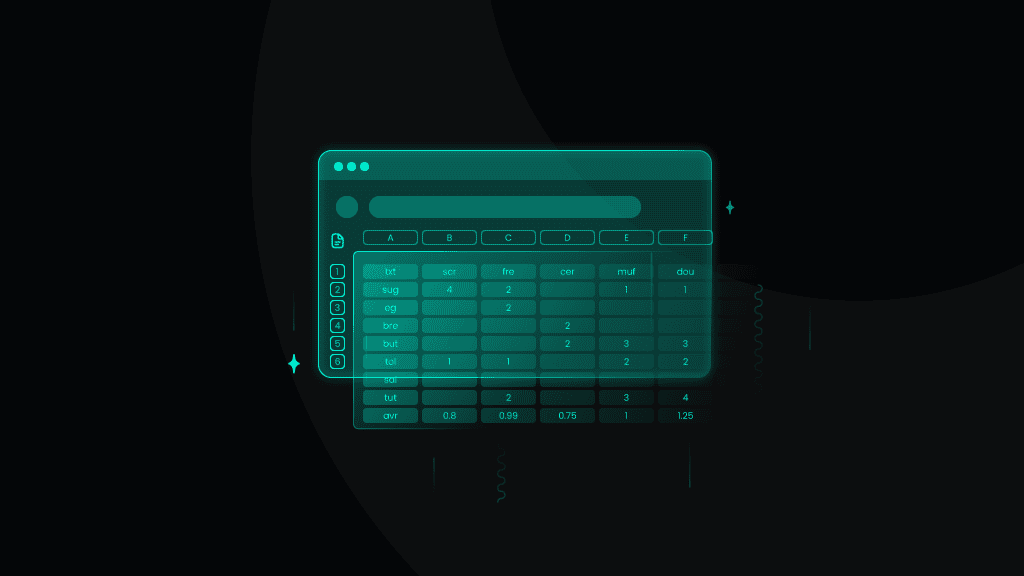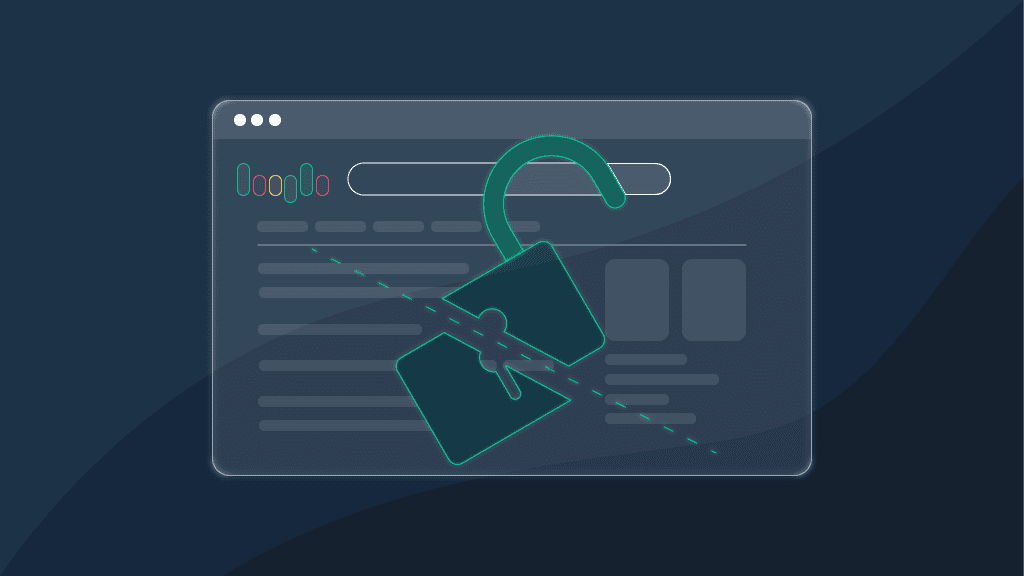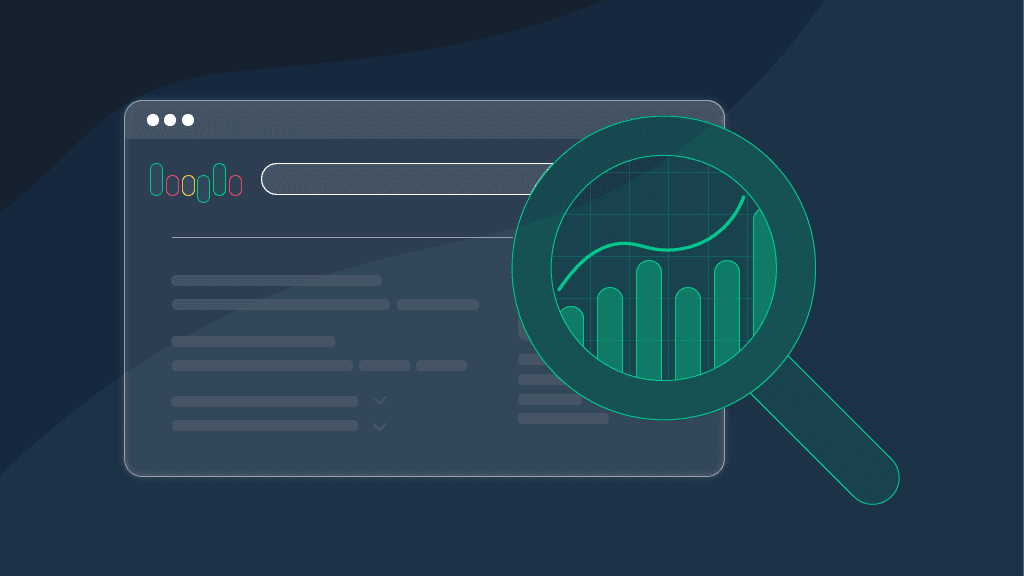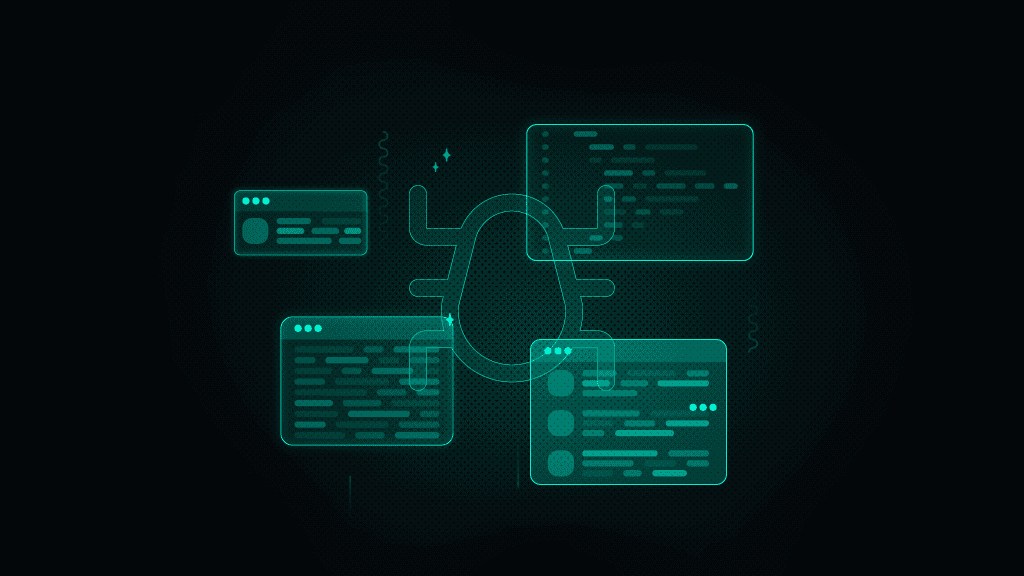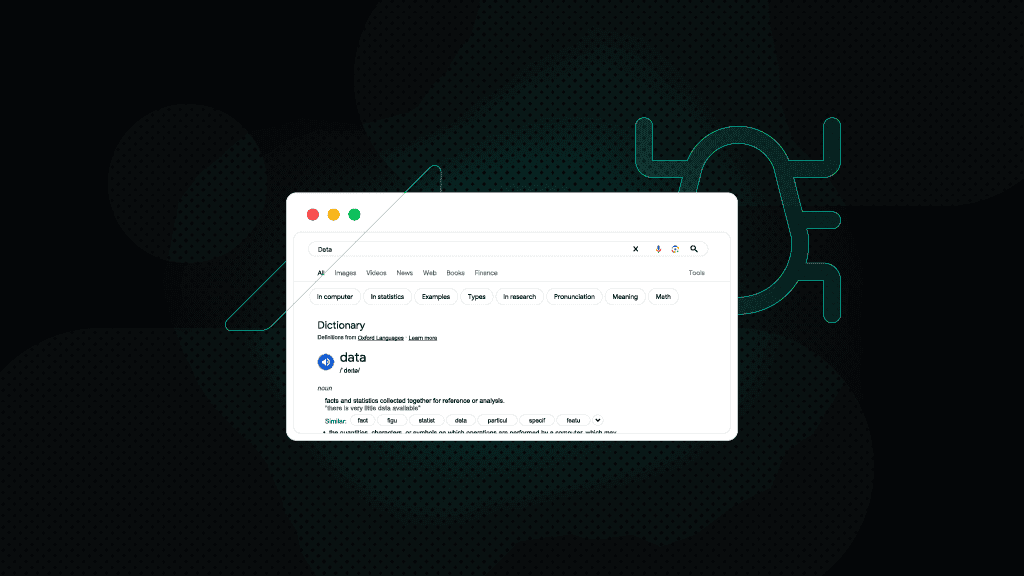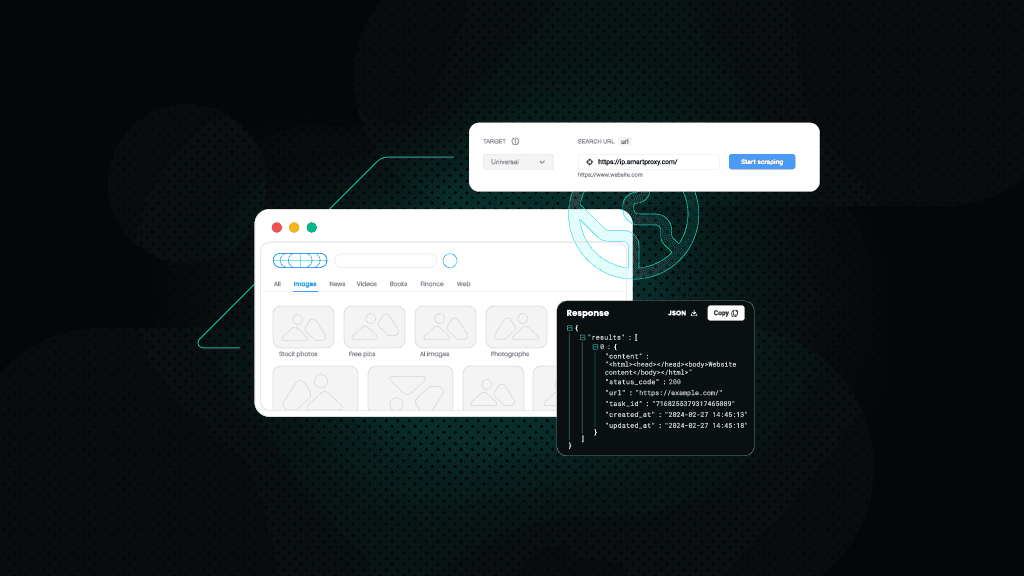Google Play Scraper API
Collect real-time app data from Google Play with Decodo’s ready-made scraping solutions. Our Google Play scraper API* helps you extract app titles, ratings, reviews, developer info, and more.
*This scraper is now a part of Web Scraping API.
125M+
IPs worldwide
99.99%
success rate
200
requests per second
100+
ready-made templates
7-day
free trial
Be ahead of Google Play scraping game
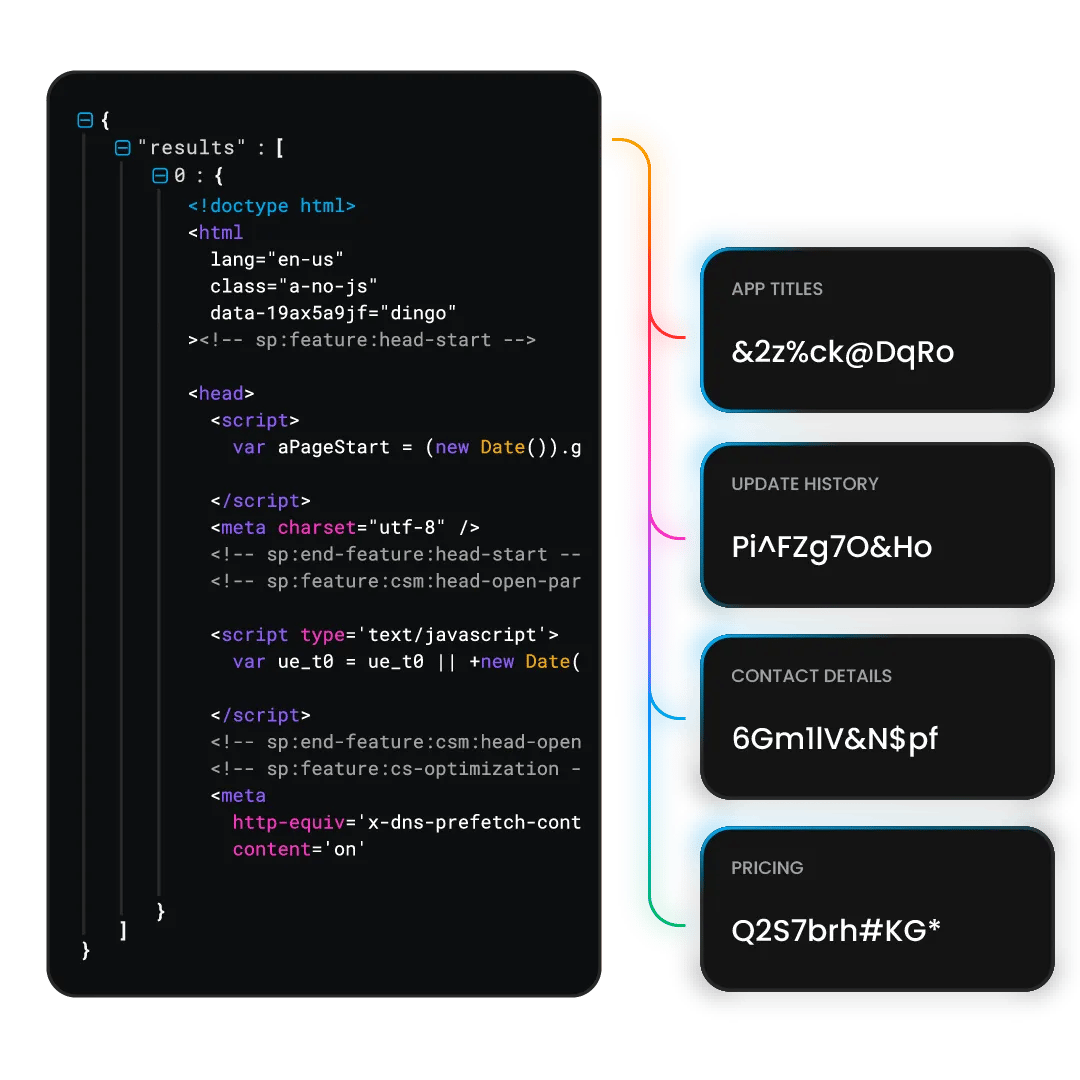
Extract data from Google Play
SERP Scraping API is a powerful data collector that combines a web scraper and a pool of 125M+ residential, mobile, ISP, and datacenter proxies.
Here are some of the key data points you can extract with it:
- App titles, descriptions, and categories
- Ratings, review counts, and individual reviews
- Number of installs and update history
- Developer information and contact details
- App icons, images, and video previews
- In-app purchase details and pricing
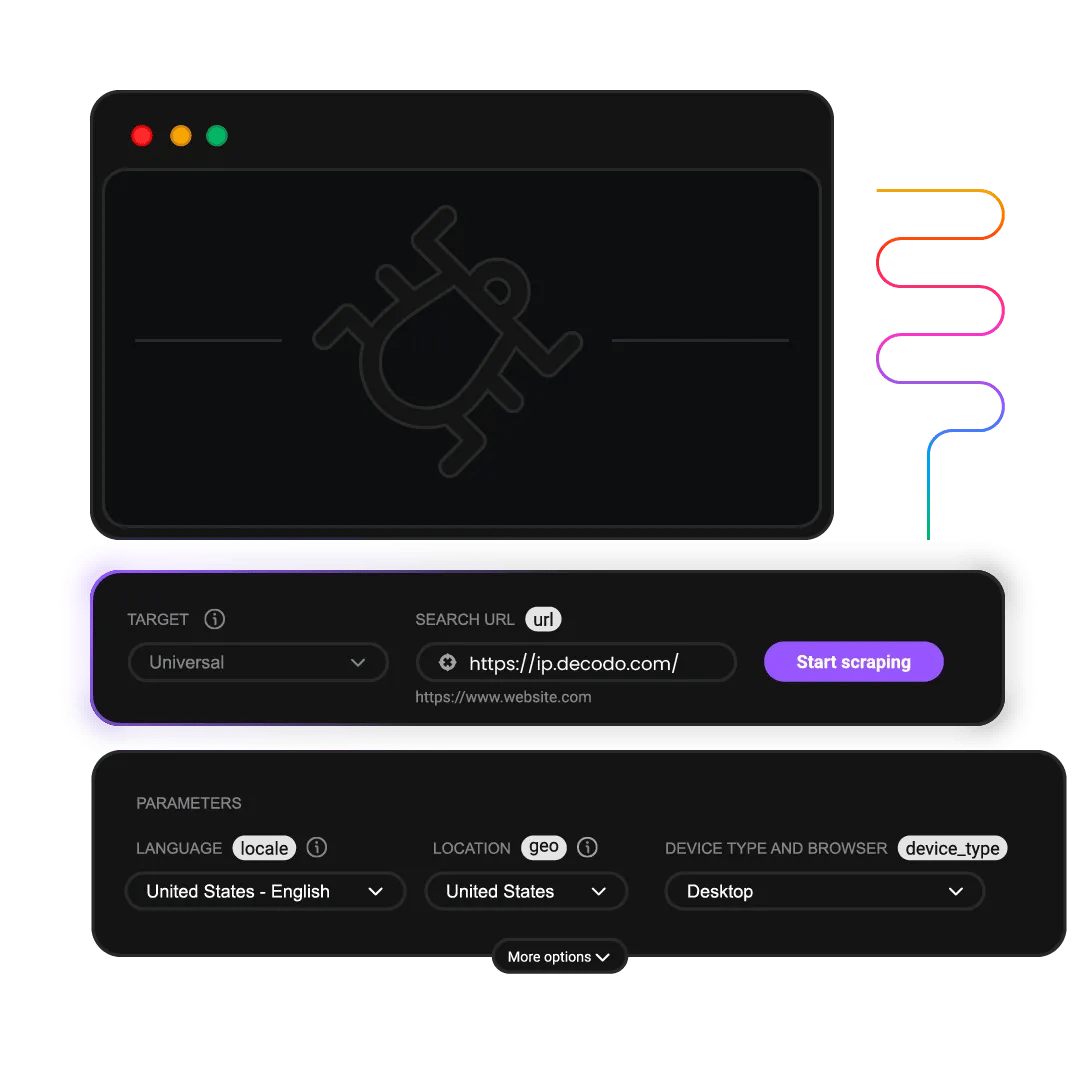
What is a Google Play scraper?
A Google Play scraper is a tool that extracts data from Google Play.
With our Google Play scraper API, you can send a single API request and receive the data you need in HTML format. Even if a request fails, we’ll automatically retry until the data is delivered. You'll only pay for successful requests.
Designed by our experienced developers, this tool offers you a range of handy features:
Built-in scraper
JavaScript rendering
Easy API integration
195+ geo-locations, including country-, state-, and city-level targeting
No CAPTCHAs or IP blocks
Scrape Google Play with Python, Node.js, or cURL
Our Google Play scraper API supports all popular programming languages for hassle-free integration with your business tools.
Google Play scraper API is full of awesomeness
Collect data from Google Play with ease using our powerful API. From JavaScript rendering to built-in proxy integration, we ensure seamless data collection without blocks or CAPTCHAs.
Flexible output options
Retrieve clean HTML ready for your custom processing needs.
100% success
Get charged only when your Google Play queries return successful results.
Real-time or on-demand results
Scrape data in real time or schedule on-demand delivery, you’re the boss.
Advanced anti-bot measures
Use built-in browser fingerprints to skip CAPTCHAs and avoid getting blocked.
Easy integration
Follow simple guides and use ready-made code examples to get started quickly.
Proxy integration
Access over 125M+ IPs worldwide under the scraper’s hood and leave IP bans behind.
API Playground
Send your first request directly from the dashboard using our free API Playground.
Find the right Google Play scraping solution for you
Explore our Google Play scraper API and choose the solution that suits you best – from Core scrapers to Advanced solutions.
Core
Advanced
Success rate
100%
100%
Payment
No. of requests
No. of requests
Advanced geo-targeting
US, CA, GB, DE, FR, NL, JP, RO
Worldwide
Requests per second
30+
Unlimited
API playground
Proxy management
Pre-build scraper
Anti-bot bypassing
Task scheduling
Premium proxy pool
Ready-made templates
JavaScript rendering
Explore our plans for any Google Play scraping demand
Start collecting real-time data from Google Play and stay ahead of the competition.
23K requests
$1.25
$0.88
/1K req
Total:$20+ VAT billed monthly
Use discount code - SCRAPE30
82K requests
$1.2
$0.84
/1K req
Total:$69+ VAT billed monthly
Use discount code - SCRAPE30
216K requests
$1.15
$0.81
/1K req
Total:$179+ VAT billed monthly
Use discount code - SCRAPE30
455K requests
$1.1
$0.77
/1K req
Total:$349+ VAT billed monthly
Use discount code - SCRAPE30
950K requests
$1.05
$0.74
/1K req
Total:$699+ VAT billed monthly
Use discount code - SCRAPE30
2M requests
$1.0
$0.7
/1K req
Total:$1399+ VAT billed monthly
Use discount code - SCRAPE30
Need more?
Chat with us and we’ll find the best solution for you
With each plan, you access:
99.99% success rate
100+ pre-built templates
Supports search, pagination, and filtering
Results in HTML, JSON, or CSV
n8n integration
LLM-ready markdown format
MCP server
JavaScript rendering
24/7 tech support
14-day money-back
SSL Secure Payment
Your information is protected by 256-bit SSL
What people are saying about us
We're thrilled to have the support of our 130K+ clients and the industry's best
Attentive service
The professional expertise of the Decodo solution has significantly boosted our business growth while enhancing overall efficiency and effectiveness.
N
Novabeyond
Easy to get things done
Decodo provides great service with a simple setup and friendly support team.
R
RoiDynamic
A key to our work
Decodo enables us to develop and test applications in varied environments while supporting precise data collection for research and audience profiling.
C
Cybereg
Trusted by:
Learn more about scraping
Build knowledge on our solutions, or pick up some fresh ideas for your next project – our blog is just the perfect place.
Most recent
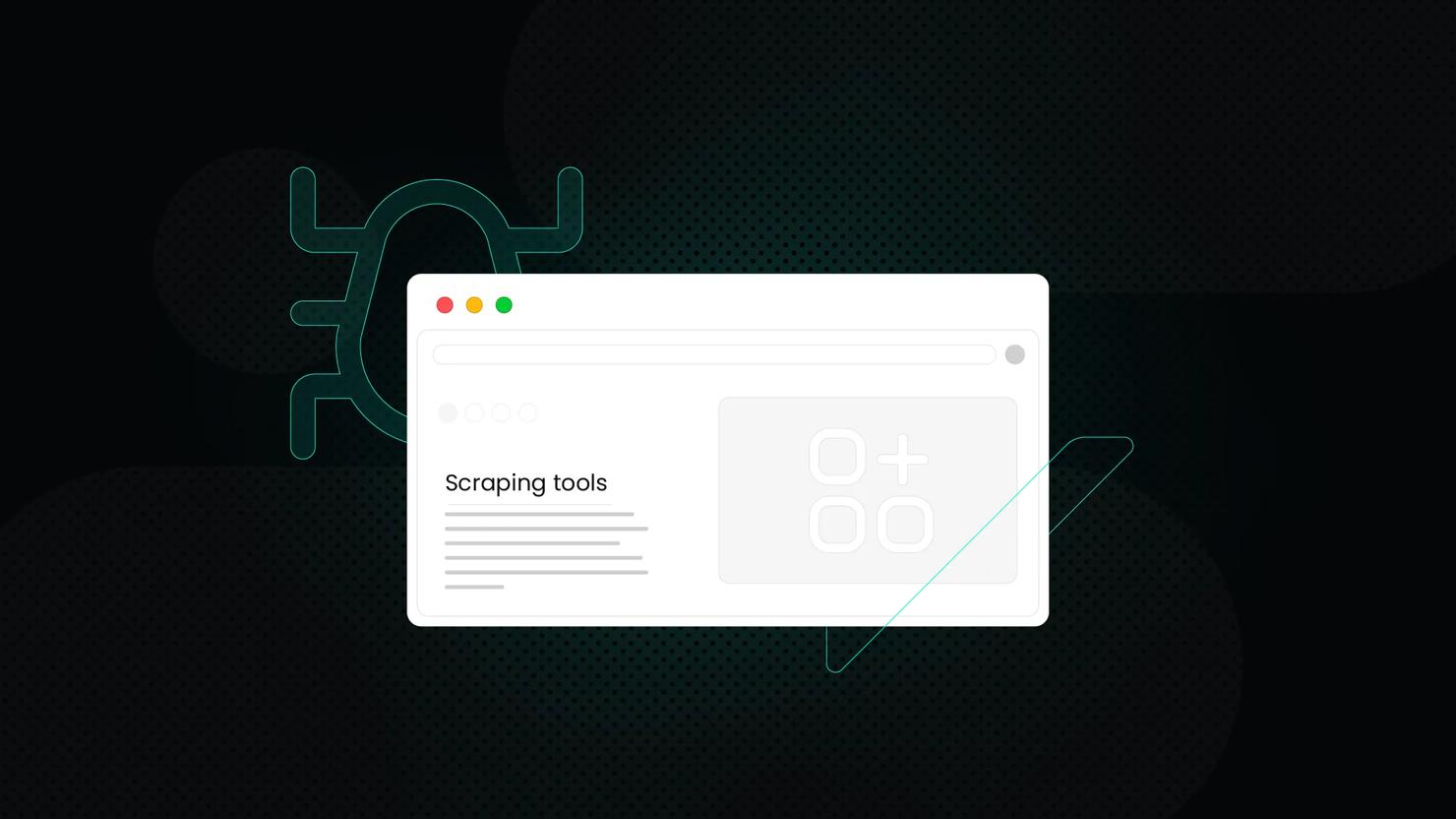
What is Data Scraping? Definition and Best Techniques (2026)
The data scraping tools market is growing significantly, valued at approximately $875.46M in 2026. The market is projected to grow more due to the increasing demand for real-time data collection across various industries.
Vytautas Savickas
Last updated: Jan 30, 2026
6 min read
Frequently asked questions
How does a Google Play scraper work?
A Google Play scraper works by sending HTTP requests to the Google Play Store to retrieve app data from publicly accessible pages. It mimics real user behavior to access app listings, details, reviews, ratings, and more. To ensure seamless data collection without interruptions, scraping solutions leverage advanced features, like IP rotation and automated proxy management. These features prevent detection and blocks from Google’s anti-bot systems and help to bypass CAPTCHAs.
Advanced scraping solutions, like Web Scraping API, also offer scheduling, allowing users to automate recurring data extraction tasks and ready-made scraping templates to help users collect data even faster.
What are the basic functionalities of a Google Play Scraper?
At its core, Google Play scraper helps to extract app metadata, including app names, descriptions, categories, developer details, and version history. It also gathers user reviews, ratings, review timestamps, and developer contact information. In addition to these essentials, our Web Scraping API also offers real-time data retrieval, automated scheduling, and seamless integration with other tools via a public API.
Why should businesses consider scraping Google Play data?
Businesses can uncover valuable insights from Google Play data that inform strategy and decision-making. With market trends, user preferences, and competitor strategies analysis, companies gain a deeper understanding of the mobile app landscape. For example, examining app reviews, ratings, and download statistics can help tailor product development, refine marketing strategies, and improve the user adoption rate. Scraping Google Play data also helps businesses to stay ahead of competitors, respond to user needs in real time, and discover emerging opportunities in the market.
How can scraping Google Play enhance market research?
Scraping Google Play is a powerful method for conducting comprehensive market research. You can collect information on app descriptions, user reviews, ratings and identify trends in consumer behavior, such as which features users value most or what pain points they commonly experience.
This data also supports a better understanding of market demand, enhances competitive benchmarking, and reveals gaps in the market that your app could fill.
What are the advantages of using a Google Play scraper for competitive analysis?
Using a Google Play scraper for competitive analysis offers a fast and scalable way to monitor competitor apps, including their updates, changes in ratings, new reviews, and releases. Web scraping helps you to identify your competitors' strengths and weaknesses, user engagement patterns, and how they respond to customer feedback.
How can I integrate Google Play Scraper with other applications?
Integrating a Google Play scraper with other applications is typically straightforward, thanks to APIs and webhook capabilities. You can follow our quick start guides, integration guides, and explore code examples for easy integration with third-party tools.
Google Play Scraper API for Your Data Needs
Gain access to real-time data at any scale without worrying about proxy setup or blocks.
